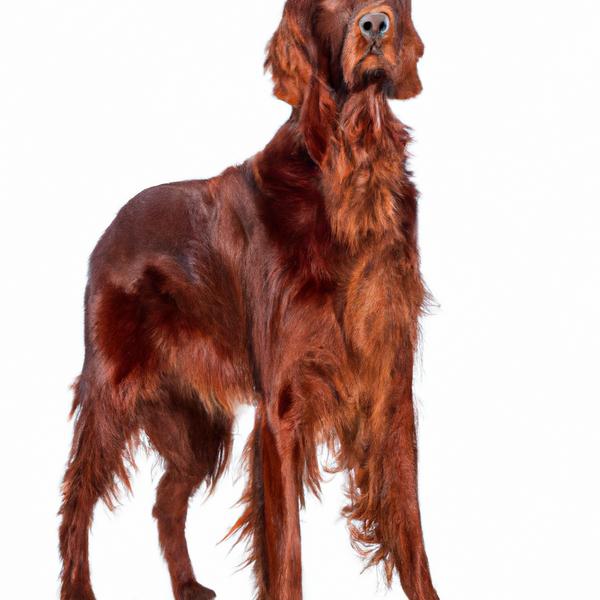Irish Setter vs. Bluetick Coonhound: Breed Differences and Similarities
Weight Gain Potential
Which breed eats more: Irish Setter or Bluetick Coonhound?
The Irish Setter and Bluetick Coonhound breeds have an average risk of becoming obese. Daily walks and a balanced diet of quality dry dog food can help maintain a healthy weight. An active lifestyle and monitoring weight regularly is recommended.
Hypoallergenic
Are Irish Setters or Bluetick Coonhounds hypoallergenic, or neither?
Unfortunately, neither Irish Setter nor Bluetick Coonhound are hypoallergenic, which may not make them the best choice for dog lovers who suffer from pet allergies.
Temperament
What are the personalities of Irish Setter and Bluetick Coonhound dogs?
Affectionate
Energetic
Lively
Intelligent
Companionable
Independent
Playful
Friendly
Gentle
Active
Shedding Level
Do Irish Setters shed more than Bluetick Coonhounds, or which breed sheds more, Irish Setters or Bluetick Coonhounds?
Irish Setter or Bluetick Coonhound dogs are not heavy shedders, but they will lose a significant amount of hair each year. To decrease the amount of shedding, you can regularly brush your Irish Setter or Bluetick Coonhound. This will remove loose hair and keep their coat growing in the same direction.
Watchdog Ability
Which dog breed makes a better watchdog, the Irish Setter or Bluetick Coonhound?
Irish Setters are decent watchdogs - they'll alert their owner if something seems amiss.
Avoid Bluetick Coonhounds as watchdogs - they're not effective.
Origin
What is the origin of Irish Setter and Bluetick Coonhound dog breeds?
Ireland
United States
Ancestry
What are the origins of Irish Setter and Bluetick Coonhound breeds?
setter, pointer, spaniel
Foxhounds, Cur, French Hound, English Coonhound
Breed recognition
Which kennel clubs recognize/register Irish Setter and Bluetick Coonhound?
American Canine Registry
American Kennel Club
America's Pet Registry
Canadian Kennel Club
Dog Registry of America Inc.
Federation Cynologique Internationale
Kennel Club of Great Britain
North American Purebred Registry, Inc.
American Canine Association, Inc.
Australian National Kennel Council
Continental Kennel Club
National Kennel Club
New Zealand Kennel Club
United Kennel Club
Canadian Canine Registry
American Canine Registry
American Kennel Club
America's Pet Registry
Australian National Kennel Council
Canadian Kennel Club
Dog Registry of America Inc.
National Kennel Club
North American Purebred Registry, Inc.
United Kennel Club
American Canine Association, Inc.
Date of Birth
When were Irish Setter and Bluetick Coonhound breeds first developed?
1700s
1940s
Breed Group
What is the Breed Group of Irish Setter and Bluetick Coonhound?
Sporting (AKC:1878)
Gundog (UKC)
Hound (AKC:2009)
Scenthounds (UKC)
Eye Color Possibilites
What are the eye colors of Irish Setter and Bluetick Coonhound dogs?
Brown
Brown
Nose Color Possibilites
What are the natural nose colors of Irish Setter and Bluetick Coonhound?
Black
Black
Coat Color Possibilites
What are the natural colors of the coat for Irish Setter and Bluetick Coonhound breeds?
Red
Blue
Brindle
Fawn
Coat Length
What is the typical coat length for Irish Setter and Bluetick Coonhound breeds?
Irish Setters have longer coats compared to most dogs.
Bluetick Coonhounds have medium-length coats.
Coat Density
What is the density of the coat of Irish Setter and Bluetick Coonhound?
Coat Texture
What is the hair texture of Irish Setter and Bluetick Coonhound?
Straight
Litter Size
What is the usual litter size for Irish Setter and Bluetick Coonhound?
An Irish Setter can have a litter of 12-14 puppies on average. However, it's worth noting that the size of the litters can vary greatly. Factors that can influence litter size include the health of the mother, breeding history, and genetics.
A Bluetick Coonhound can have a litter of 11-12 puppies on average. However, it's worth noting that the size of the litters can vary greatly. Factors that can influence litter size include the health of the mother, breeding history, and genetics.
Adaptability
Irish Setter and Bluetick Coonhounds are known for their adaptability and versatility. They are capable of adapting well to a wide range of lifestyle changes and living environments, making them great companions for families and individuals of all lifestyles.
Health Issues
Between Irish Setter and Bluetick Coonhound, which breed is more prone to health problems?
While the Irish Setter breed is generally healthy, occasional vet check-ups are still necessary to address any health concerns.
The Bluetick Coonhound is prone to health issues and requires regular check-ups with a vet to identify and treat any problems early.
Major Concerns
What are the major health concerns for Irish Setter and Bluetick Coonhound breeds?
Gastric Torsion
Progressive Retinal Atrophy
Hip Dysplasia
Epilepsy
Hip Dysplasia
Bloat
Minor Concerns
What minor health issues should be kept in mind when owning Irish Setter and Bluetick Coonhound?
Cataracts
Megaesophagus
Von Willebrand's Disease
Hypothyroidism
Osteochondritis Dissecans
Patellar Luxation
Occasional Tests
What occasional tests are recommended for Irish Setter and Bluetick Coonhound breeds?
Eye
Hip
Blood Test
Dna Test For Vwd
Dna For Pra
Thyroid Tests
Eye Examination
Physical Examination
Hip
Knee
X-Rays
Physical Examination
Energy
How do the energy levels of Irish Setters and Bluetick Coonhounds compare?
Irish Setter and Bluetick Coonhound breeds are high-energy dogs, thus an active lifestyle suits them well.
Social Needs
Irish Setter vs Bluetick Coonhound social needs comparison
Irish Setter has very high social needs and requires regular mental and physical stimulation, a job or purpose, and companionship.
Bluetick Coonhound has average social needs and is less independent than other breeds.
Exercise Needed
Irish Setter vs Bluetick Coonhound exercise need comparison.
The Irish Setter and Bluetick Coonhound breeds need a high level of physical activity to maintain a healthy lifestyle. They also make great companions for people who lead an active lifestyle and enjoy running, hiking, or other outdoor activities. These breeds are not suitable for people with a sedentary lifestyle or those who live in small apartments.
Sleeping Need
Which of the two sleeps the most/least: Irish Setter or Bluetick Coonhound?
Irish Setter and Bluetick Coonhound are active dogs that may not require as much sleep as other breeds. However, they still need enough sleep to stay healthy.
Drooling Tendency
Which drools more/less, Irish Setter or Bluetick Coonhound?
The Irish Setter and Bluetick Coonhound breeds are known for their low drooling tendency, making them ideal choices for people who dislike drool marks on their clothing. If you are looking for a dog that drools less, these breeds may be suitable options for you.
Tendency to Bark
Do Irish Setters or Bluetick Coonhounds bark more/less frequently?
Irish Setters are typically quiet and only bark when needed, such as to alert their owner or when in distress.
Bluetick Coonhound dogs bark and howl frequently and are not recommended for quiet homes.
Territorial
Is the Irish Setter or Bluetick Coonhound a better guard dog?
Irish Setter dogs may not be the best choice as guard dogs because they do not have a strong instinct to defend their territory.
Bluetick Coonhound dogs are not typically good guard dogs due to their lack of protective nature and weak territorial drive.
Mouthiness
Mouthiness Comparison: Irish Setter vs Bluetick Coonhound?
Roaming urge
Irish Setter vs Labrador: Running away tendency?
Prey Drive
Irish Setter or Bluetick Coonhound - which breed has a higher level of prey drive?
Past times
What are some enjoyable activities and ways to keep Irish Setter and Bluetick Coonhound entertained?
Playing Ball, Hiking, Car Travel, Taking Naps
Chase, Fetch, Walk, Go to Park, Catch treats, Play, Nose work, Eating Snacks, Catch, Sing, Coon hunting, Guard dog, Hike
Activity Level
Which breed has higher energy, Irish Setters or Bluetick Coonhounds?
Irish Setter and Bluetick Coonhound are high-energy dogs that require a lot of mental and physical exercise. Without proper stimulation and attention, these breeds can become problematic. If you're considering these breeds, be prepared to invest time and effort in their exercise and training.
Tolerance of being left alone
Walks per Week
How many miles should Irish Setter or Bluetick Coonhound walk each week?
There's really no limit to how far you walk your dog as long as they're comfortable. For Irish Setter, it's at least 15 miles / week. Just remember to build distance and stamina gradually over time.
There's really no limit to how far you walk your dog as long as they're comfortable. For Bluetick Coonhound, it's at least 10 miles / week. Just remember to build distance and stamina gradually over time.
Activity per Day
Do Irish Setters or Bluetick Coonhounds require more exercise?
Both Irish Setter and Bluetick Coonhound typically require a minimum of 90 minutes of exercise each day. The exercise can be spread throughout the day and may involve high-energy activities like walking, running, and playing.
Grooming
Which breed is easier to maintain in terms of grooming, Irish Setters or Bluetick Coonhounds?
Irish Setters require significant grooming, including regular trims and professional grooming assistance to maintain their coat. They may also require frequent bathing to keep their coat and skin healthy.
The Bluetick Coonhound is a low-maintenance breed that doesn't require much grooming.
Brushing Frequency
What is the recommended brushing frequency for Irish Setter and Bluetick Coonhound dogs?
Ideally, Irish Setter should be brushed at least 2 or 3 times a week (preferably daily) improve shedding.
Bluetick Coonhound should be brushed at least once a week. Of course you can give them more frequent brushes if you find that they are still shedding a lot
Brushing Tools
What brushing tools are used for Irish Setters and Bluetick Coonhounds?
Pin Brush
Slicker Brush
Dematter
Comb
Deshedder
Clipper
Nail Clipper
Pin Brush
Slicker Brush
Nail Clipper
Cups
How much food should be given to Irish Setter or Bluetick Coonhound in cups?
For an average 60-71 pound (27 - 32 kg) Irish Setter feed 3 cups daily. But, keep in mind, the amount you feed is going to be dependent on the quality of the food you are feeding.
For an average 55-80 pound (25 - 36 kg) Bluetick Coonhound feed 2.5 cups daily. But, keep in mind, the amount you feed is going to be dependent on the quality of the food you are feeding.
Daily Cost
Which breed has a higher daily cost, Irish Setter or Bluetick Coonhound?
The average cost of an Irish Setter is somewhere $2.80 - $3.20 per day.
The average cost of a Bluetick Coonhound is somewhere $2.50 - $3.20 per day.
Monthly Cost
Which breed has a higher monthly cost, Irish Setter or Bluetick Coonhound?
The average per month expenses of an Irish Setter is between $84 - $95. This makes an average of $1008 - $1140 per year. It will be on the higher side when the dog is still small because it will need more frequent visits to the vet, shots.
The average per month expenses of a Bluetick Coonhound is between $74 - $95. This makes an average of $888 - $1140 per year. It will be on the higher side when the dog is still small because it will need more frequent visits to the vet, shots.
Intelligence
Comparing Intelligence: Irish Setters vs Bluetick Coonhounds
Irish Setter is a very intelligent and trainable breed.
Bluetick Coonhound has below average obedience intelligence, but they excel in understanding human emotions.
Sensitivity Level
How do Irish Setter and Bluetick Coonhound compare in sensitivity?
This breed is sensitive and requires gentle handling and a calm home environment.
This breed is sensitive to its environment and best suited for patient and understanding families with a consistent routine.
Affection Dependance
Which is the more affectionate dog breed: Irish Setter vs Bluetick Coonhound?
Apartment Friendly
Which breed is more apartment-friendly: Irish Setter or Bluetick Coonhound?
Irish Setter and Bluetick Coonhound are not apartment-friendly dog breeds. These dog breeds are best in homes with large, fenced-in yards. They are not suited for apartment life and can become destructive due to pent up energy from being in a small space.
Child Friendly
Do Irish Setters or Bluetick Coonhounds have a friendlier temperament towards children?
Irish Setters make excellent family pets for kids due to their gentle, protective nature and calm temperament.
Bluetick Coonhounds are good with kids if socialized and trained from a young age.
Senior-friendly
Which dog is more suitable as a pet for the elderly - Irish Setter or Bluetick Coonhound?
Cat Friendly
Do Irish Setter or Bluetick Coonhound breeds have a better compatibility with cats?
Irish Setters are very friendly with cats and make great companions for them.
Bluetick Coonhounds are average in their friendliness toward cats and tend to do well with them, especially if raised together.
Dog Friendly
Which breed is more sociable with other dogs: Irish Setter or Bluetick Coonhound?
Irish Setters and Bluetick Coonhounds are very friendly towards other dogs. This breed typically have a happy and affectionate temperament around dogs.
Pet friendly
How do Irish Setter or Bluetick Coonhound dogs interact with other pets?
Stranger Friendly
Which breed is more friendly with strangers: Irish Setter or Bluetick Coonhound?
Irish Setters are highly friendly around strangers.
Bluetick Coonhounds are averagely friendly around strangers but benefit from early socialisation.
Playfulness
Which breed is more playful between Irish Setter and Bluetick Coonhound?
Irish Setters are very playful, so adopting an older one might be a better option for a more relaxed experience.
Bluetick Coonhounds have an average level of playfulness, enjoying playtime like most dogs but not excessively so.
Trainability
How do the trainability levels of Irish Setters and Bluetick Coonhounds compare?
The Irish Setter is highly intelligent and eager to please, making it a great choice for both novice and experienced dog owners due to its easy trainability.
Bluetick Coonhounds are popular for their ease of training and quick learning ability.
Compare Irish Setter with other breeds
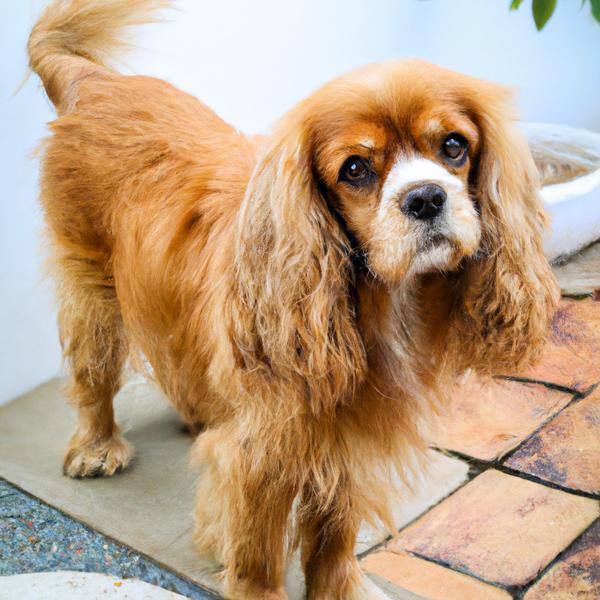
Golden Cavalier
Irish Setter vs Golden Cavalier
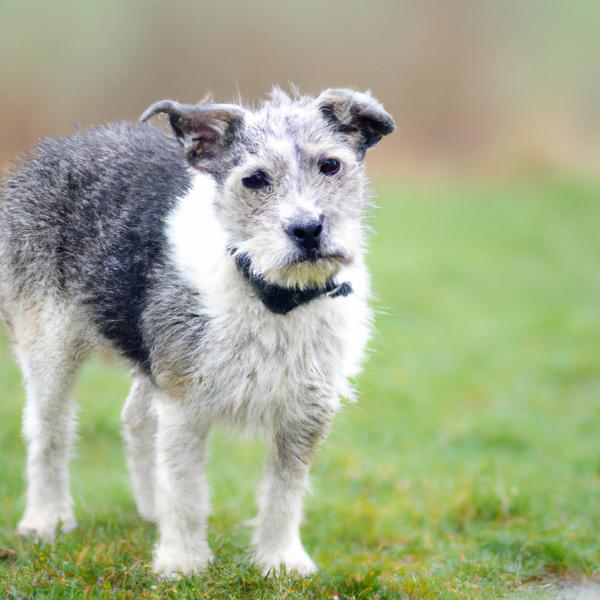
Scolden Terrier
Irish Setter vs Scolden Terrier
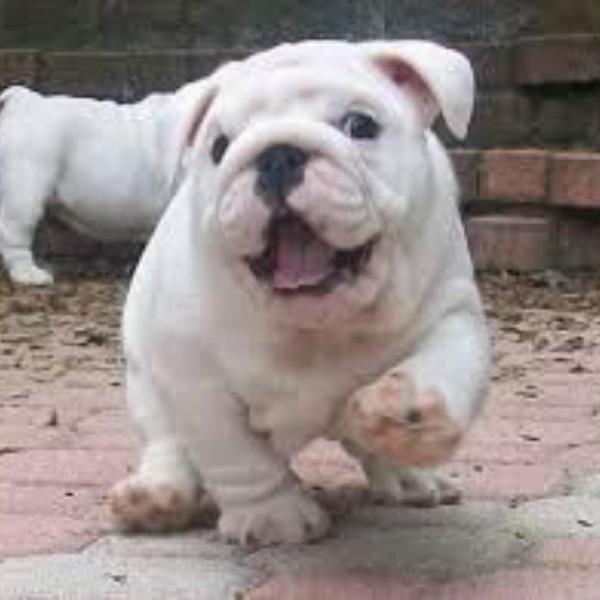
Antebellum Bulldog
Irish Setter vs Antebellum Bulldog

Fourche Terrier
Irish Setter vs Fourche Terrier
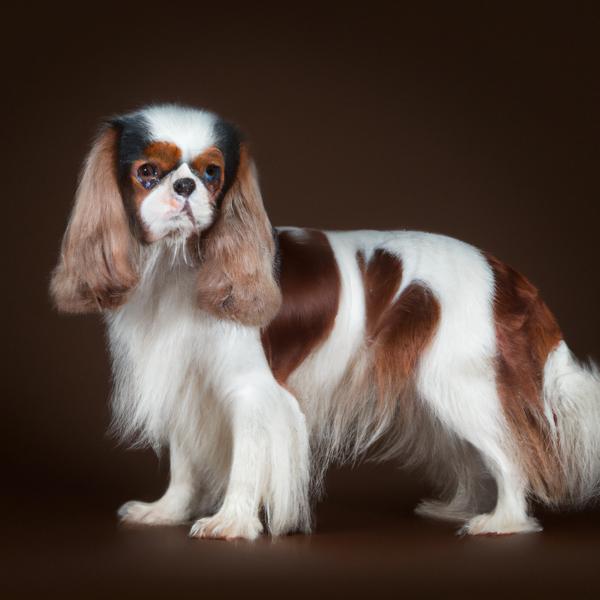
Crested Cavalier
Irish Setter vs Crested Cavalier
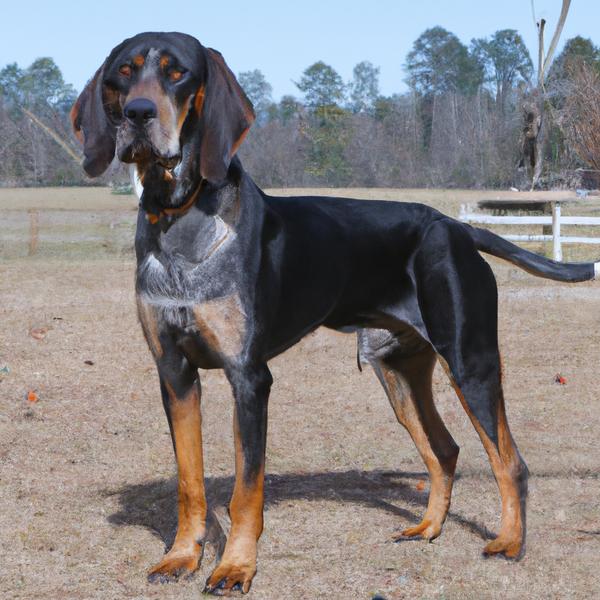
Bluetick Coonhound
Irish Setter vs Bluetick Coonhound
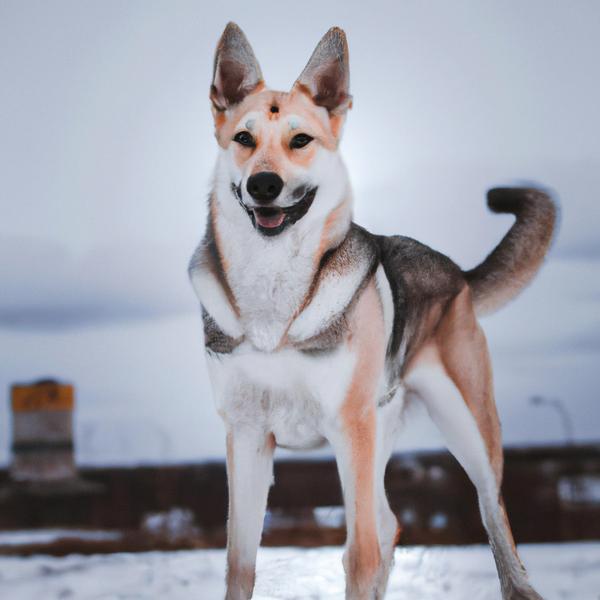
Gerberian Shepsky
Irish Setter vs Gerberian Shepsky
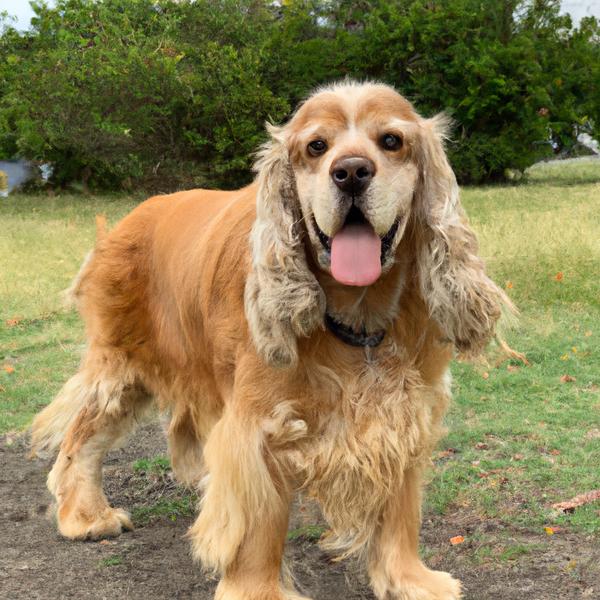
Siberian Cocker
Irish Setter vs Siberian Cocker

German Pinscher
Irish Setter vs German Pinscher
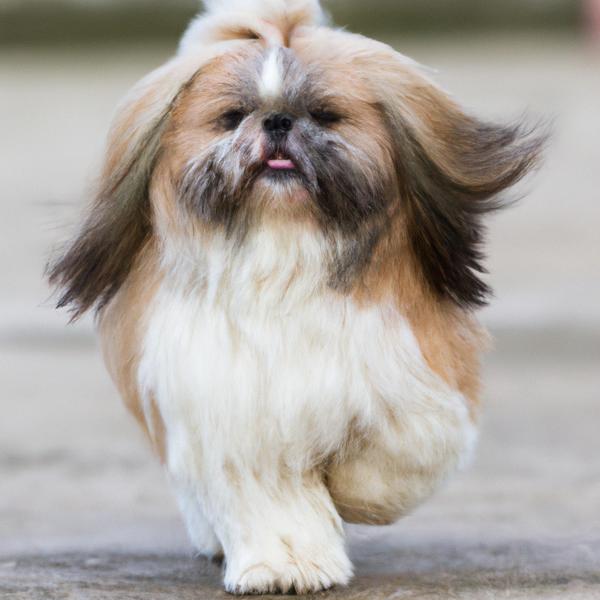
Lhasalier
Irish Setter vs Lhasalier
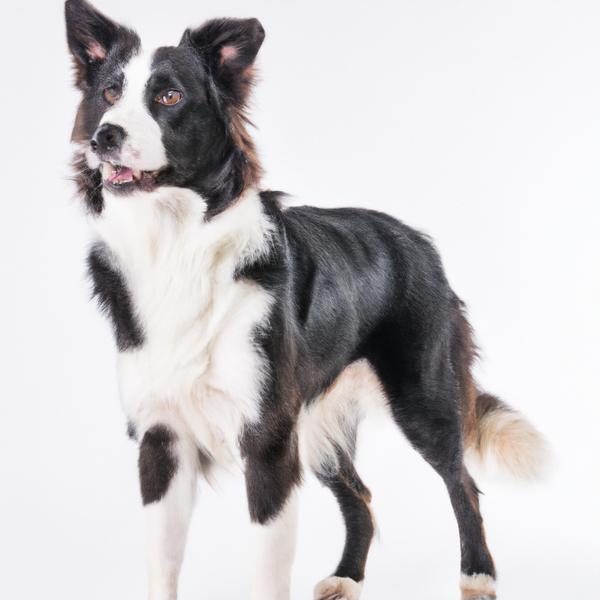
Border Collie
Irish Setter vs Border Collie
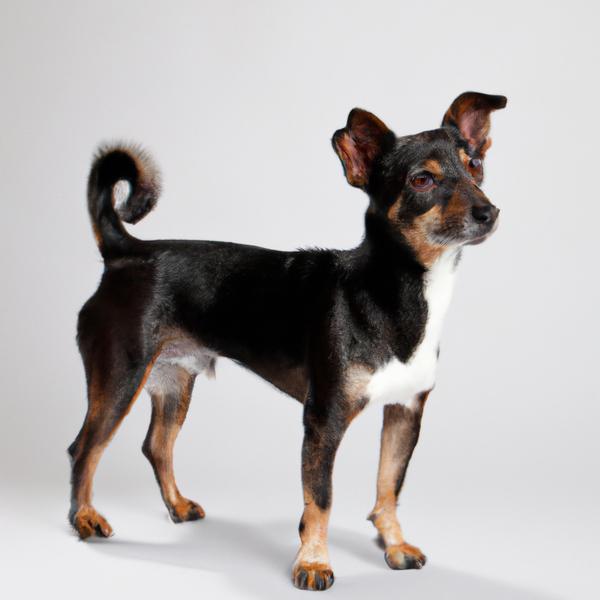
Japeke
Irish Setter vs Japeke
